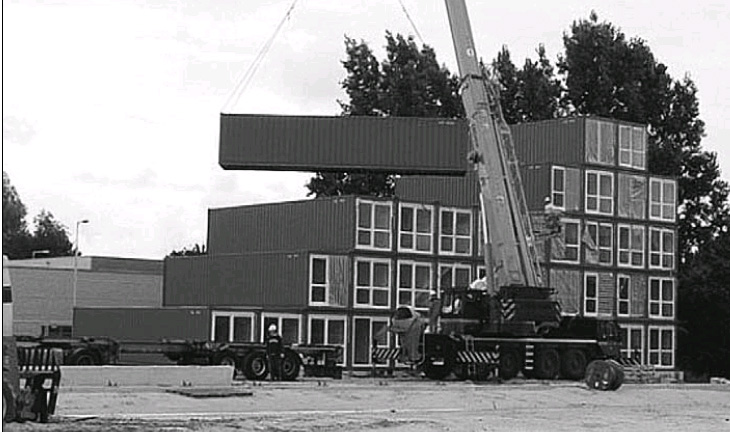Initial experiment could become permanent, mayor says
Jeff Lee
Sun

Modular buildings have advanced far beyond the days of mobile homes, to the point where they could become permanent housing.
Vancouver is considering allowing modular housing for everything from temporary lodging for the homeless to live-work studios for artists and even housing for seniors.
If the experiment is a success, the city could make such forms of housing permanent, Mayor Gregor Robertson said Thursday.
In the meantime, the city will consider making some unused public lands available for modular housing as it and the province work their way through a backlog to build 1,500 permanent social housing units on 14 city sites.
“For the time being it’s temporary housing. There would be a time limit. Five years is a probable ballpark,” the mayor told The Vancouver Sun’s editorial board.
“We’ve seen this form of housing used in other cities to fill a gap in the housing continuum and we have a couple of big gaps. This may get some vacant land into use.”
Vancouver doesn’t allow modular or portable buildings to be used for residences, in part because in the past they haven’t met the city’s building and zoning codes.
But the modular building industry has advanced so far beyond the days of mobile homes that Robertson thinks they could become a new permanent form if public demand and willingness to modify bylaws is there.
“The possibility exists. It would depend on the quality of housing, the acceptance of neighbourhoods and whether there is a strong case to be made for a more permanent status. But right now we’re looking at it as a stopgap form of housing.”
Olympic organizers used modular housing in Whistler to help supply enough beds for athletes and officials, and Whistler municipal officials relaxed laws to allow temporary containerized housing for employees of tourism-related businesses. Vanoc donated the units to the province after the Winter Games, and the 358 units are being converted to seniors housing around rural B.C.
Robertson’s comments came after Coun. Kerry Jang issued a motion for next Tuesday’s council meeting asking City Manager Penny Ballem to seek expressions of interest from modular housing companies to build demonstration projects.
Jang said he’s seen three types of units that could be suitable for people. He described them as: “Lego” building-block style, “Tinkertoy” add-on rooms style; and “plastic modular kit” style with buildable walls, floors and ceilings. Each has its own benefits, he said, but all of them must meet a livability test.
“The question I asked all the companies is, is this something that people would want to live in,” he said. “The answer came back yes.”
Companies would be expected to build the show units at their own cost without any commitment from the city to purchase units. However, winning ideas could be put in place as early as next year, Jang said.
Linus Lam, the executive director of Architecture for Humanity Vancouver, said people need to dispel the idea that modular housing is equivalent to mobile homes. “At one end of the spectrum you have emergency shelters and at the other end permanent housing. What we are talking about is in between, but doing something entirely different,” he said.
“These structures have the capacity to be permanent structures, but also have the capacity to be relocated. In terms of life cycle costs, that’s tremendous.”
© Copyright (c) The Vancouver Sun

